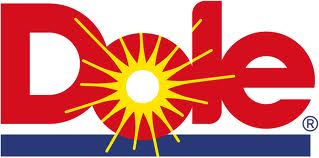Food safety: It's time to get serious

It sounds shocking, but it's true: In America, we have one of the least safe food supply chains in the world. The food that is being sold to us is making us sick at far greater rates than any other industrialized nation. We don't even realize it, but our food is contaminated like crazy.
This is a terrible situation, but it's complicated, and the market forces at work are largely beyond our control. It's partly because our food supply is so industrialized and corporatized and global, and partly because we insist on low prices over freshness, and partly because our legislators are more interested in cozying up to big business than they are in protecting the consumer. The USDA is in the pocket of Big Agriculture, and the FDA is woefully under-funded.
Our food comes from this huge industrial system which is invisible to most of us. And there simply aren't enough inspectors to keep an eye on all of it. Thus you get salmonella and e. coli contamination alerts almost weekly, it seems. In 2008, the GAO blew the whistle on the FDA for being unable to protect Americans from contaminated food, but little has changed in the four years since that report was issued.
Worst of all, they have convinced us that it's our fault. Get sick from eating contaminated meat? You should have cooked it better. Get sick from eating contaminated spinach? You should have washed it better. Get sick from eating contaminated peanut butter? You, um… yeah.
An even more malicious sub-set of problems exists in the category of "foods which are imported from abroad." Other countries aren't as scrupulous about inspecting their food products. Corruption runs rampant, from upper echelon government officials creating policy, all the way down to the lowest shipping clerk who takes a bribe to look the other way.

Food being imported from China in particular has a pretty bad track record lately. China is the world's leading source of fake honey: A sugar syrup boosted with artificial flavorings, and often containing toxic byproducts. Toxic additives in milk products imported from China have resulted in infant deaths. Not to mention the "melamine in pet food" disaster that killed hundreds of beloved pets.
(China is what I think of, when Libertarians and Tea Partiers start raving about minimal government and the ability of the Invisible Hand of the Marketplace to solve this kind of problem. China's food supply has virtually zero government oversight, and unregulated food production is the norm.
According to the Libertarian ideal, this should create a perfect system where fraud doesn't happen, because consumers avoid "bad" companies and only buy their food from "good" brands.
In reality, that's an academic pipe dream. It only works if there is transparency. In China, food changes hands so many times before it ends up on a store shelf that it's impossible to know where it's from, or even what it is.
To give you just one of many examples, fake eggs are a huge problem in China. China's own government-controlled news agency estimates that as many as 40 percent of the eggs sold in China are fakes made from gelatin and rolled in a calcium carbonate paste to make a shell. Many of them contain toxic industrial lubricants and other byproducts.)
Fresh produce is also being shipped into the United States at a brisk clip. Countries on the other hemisphere have opposite seasons from ours, which means that you can get fresh blueberries from Chile even in the depths of winter. The FDA is only able to inspect about one percent of the produce imported into the United States. And most of that produce will be eaten raw, which makes it particularly dangerous.

America's food system has been a race to the bottom for decades. I'm as much at fault as anyone else. Last week I found myself standing at the meat case, trying to choose which package of boneless chicken thighs to buy. I had three buying options: A local free-range organic producer based just 20 miles away, a large poultry producer based on the other side of the state, or an unknown mystery chicken that just had a label and a price, with no information on its source.
The mystery chicken was the cheapest; the state-wide chicken cost an extra dollar per pound, and the organic free-range chicken was about two dollars more per pound. And me? Even knowing what I do about the food safety situation and the need to "vote with your dollars" and the importance of supporting local producers, I chose the cheapest. I couldn't afford not to. And that's our problem, in a nutshell.
Main image courtesy Flickr/tauzero

3 comments